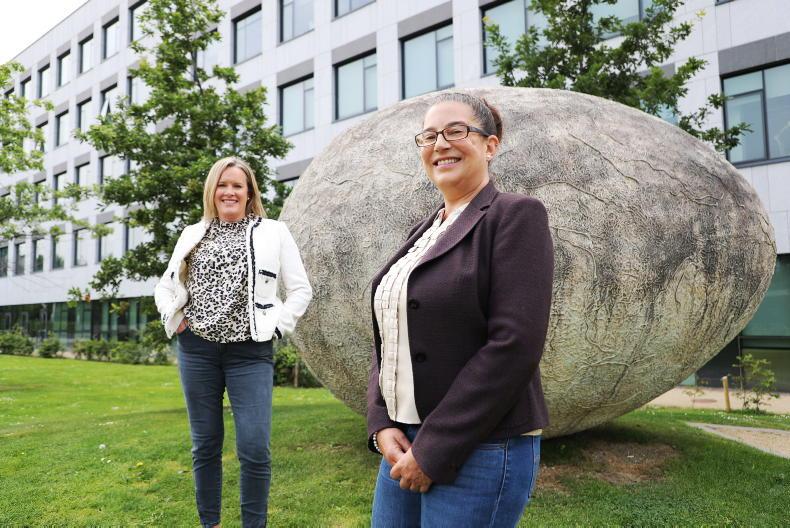At the beginning of this month, Minister for Further and Higher Education, Research, Innovation and Science Simon Harris announced a total investment of €53m in 71 projects under the Science Foundation Ireland (SFI) Frontiers for the Future programme.
On the back of this, University College Dublin (UCD) was awarded just under €8m for a total of 14 projects.
Among those funded are UCD scientists, Professor Emmeline Hill of UCD’s School of Agriculture and Food Science and Professor Lisa Katz of UCD’s School of Veterinary Medicine, who are well-known for their speed gene discovery, which identifies a thoroughbred’s optimum racing distance.
The duo have been awarded over €880,000 for a five-year research project to investigate the dynamic interplay that exists between the inherited DNA sequence of a horse and the environment.
During this project, the UCD research team will use sophisticated genomics and computational technologies to evaluate how the early life environment of the foal, weanling, yearling and young racehorse influences the DNA and affects behaviour, disease and racing performance.
This project will build on a 15-year research programme led by Hill and Katz in equine exercise physiology and genomics, which has uncovered many genetic contributions to athletic traits in the horse.
Prestigious
Professor Hill said: “We are delighted to receive this prestigious funding from SFI through the Frontiers for the Future programme. In our new research programme we will investigate genetic and epigenetic contributions to exercise, disease and behaviour traits in racehorses.”
“Epigenetics refers to the modification of DNA that can alter the activity of genes. A major component of the project is to understand how the early life environment of the foal influences its genetic potential for success.
“This is the first time that epigenetic changes to the DNA of elite athletes, of any species, will be profiled and followed from the early neonatal period to high level performance.”
She added: “The DNA that a foal is born with plays a key role in its future potential, but not a defining role. How breeders, trainers, handlers and jockeys shape the DNA of a horse during its early years may have a comparable or perhaps larger contribution to its success. In this project we will use sophisticated genomics technologies to evaluate how the early life environment affects traits that contribute to racecourse success.”
Collaboration
Irish equine science company, Plusvital Ltd and racehorse trainer and breeder Jim Bolger will also contribute to this research project.
Professor Katz said: “We are very grateful to be supported once again by Jim Bolger and his team, who have contributed to our research projects for more than 15 years. Without the access to horses for our research this work would not be possible. Our collaboration is unique in the global equine research community, and we are delighted this opportunity has been recognised.”
The funding will create four new research positions at UCD.




SHARING OPTIONS